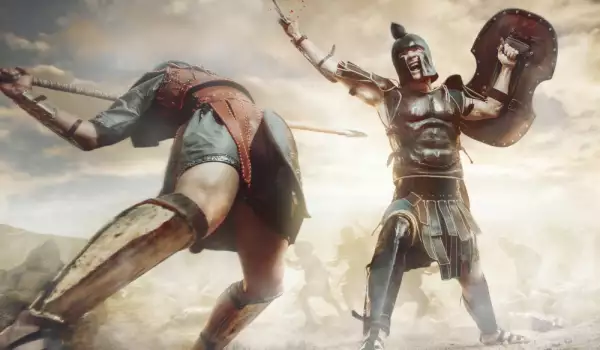In our daily lives we all use expressions, sometimes unconsciously, that have become deeply seated in our culture. Often though, we have no idea where and how these originated from.
Have you ever thought about where the phrase "Achilles Heel" comes from? Or why liars are likened to "The Boy Who Cried Wolf"?
All roads lead to Rome. In Antiquity, the Romans built 50 000 mi (80 000 km) of road to various destinations - from Britannia, through Spain, all the way to North Africa. Some of these survive to this day. But in truth, not all roads lead to Rome.
Read our curious list to learn about the history of some of the most widely used phraseologies that we take for granted, without considering their etymology.
1. Achilles Heel
When we're talking about the Achilles Heel, we mean a person's weak spot. This can be a physical or a mental vulnerability. The phrase comes from deep Antiquity, and more precisely, from Greek mythology and the story of Achilles.
Homer's hero from the Iliad had a weak spot - his heel. When he was a baby, his mother dipped him in the River Styx to grant him superhuman strength. But she did this by holding him by one of his feet, preventing that heel from touching the supernatural waters. It became his only weakness. Consequently, he was shot and killed by prince Paris, whose arrow struck him right in the heel.
2. The Boy Who Cried Wolf
Nowadays we use this expression whenever someone asks for help without really needing it. It originates from one of Aesop's fables.
It tells the story of a shepherd boy who would often get bored when out grazing his sheep. To have a little fun, he would often cry out "Wolf! Wolf, " and get the entire village up in arms. The locals would always rush to his aid but after realizing that he was always lying, stopped responding to his cries. One day, an actual wolf did appear but no one came to the boy's aid and he was eaten by the beast.

3. Between the Hammer and the Anvil
The similar expression "Between Scylla and Charybdis" is an idiom originating from Greek mythology, essentially meaning having to choose between 2 evils. Scylla and Charybdis were mythical sea monsters, representing an unavoidable threat to all passing sailors. In Homer's stories, Odysseus was forced to choose 1 of the 2 monsters to face before he could pass through the strait. He chose Scylla and lost only a few of his sailors.
4. Pandora's Box
Today it's linked to anything that brings us a ton of trouble. In Ancient Greek myths, within the box were locked away all of the diseases and suffering but when the curious Pandora opened it, they spread out all across the world. When she closed it again, all that was left inside was the hope that keeps people going even today.














